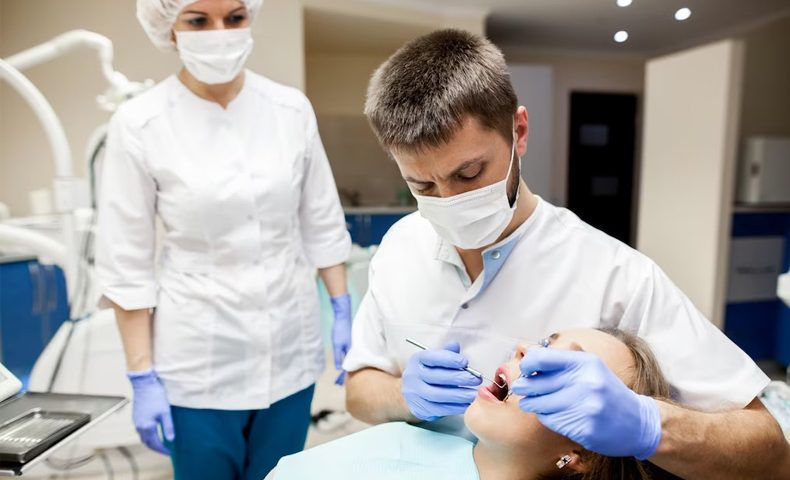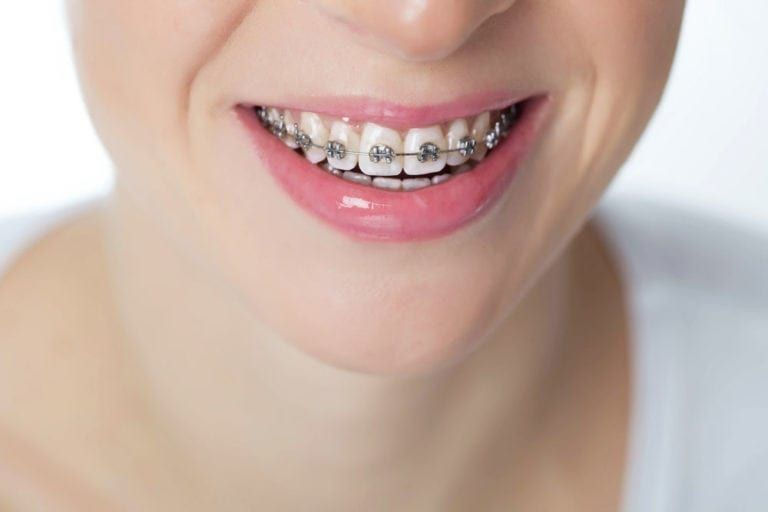Why Routine Dental Checkups Are the Key to Long-Term Oral Health
- dclinicdubai
- Jan 13
- 4 min read
Routine dental checkups are essential for maintaining long-term oral health and preventing serious dental issues. General Dentistry In Dubai where individuals prioritize high-quality dental care, these regular visits are the cornerstone of a healthy smile. Through consistent checkups, you can catch problems early, avoid costly treatments, and ensure your teeth and gums stay in excellent condition for years.

The Importance of Regular Dental Visits:
Routine visits to your dentist play a critical role in maintaining oral hygiene. These visits are more than just about cleaning your teeth; they provide an opportunity for early detection of potential dental issues and preventive treatments.
Benefits of Regular Dental Checkups:
Early Detection of Dental Problems: Regular checkups help identify issues such as cavities, gum disease, and oral cancer before they progress into severe conditions.
Preventive Care: Professional cleaning and fluoride treatments help prevent plaque buildup, cavities, and gum disease.
Cost-Effective: By addressing issues early, you reduce the likelihood of needing expensive treatments like root canals or extractions.
What Happens During a Routine Dental Checkup:
Understanding what happens during a routine dental visit can ease any concerns you might have. It’s important to know what to expect so you can prepare accordingly.
Key Steps of a Dental Checkup:
Comprehensive Examination: Your dentist will examine your teeth, gums, and mouth for signs of decay, disease, and abnormalities.
Cleaning: The hygienist will perform a professional cleaning to remove plaque and tartar buildup that regular brushing can’t eliminate.
X-rays: If necessary, your dentist may take X-rays to detect hidden issues like cavities between teeth or bone loss.
Gum Evaluation: Your dentist will check for signs of gum disease, such as inflammation, bleeding, or recession.
Preventing Future Dental Issues:
Routine checkups don’t just focus on immediate care—they also play a vital role in preventing future dental issues that could arise.
How Checkups Help Prevent Common Dental Issues:
Cavities: Professional cleanings and fluoride treatments during checkups help prevent cavities by keeping teeth free from plaque and strengthening enamel.
Gum Disease: Regular visits help detect early signs of gum disease, allowing for timely treatment before it progresses to more serious stages.
Tooth Sensitivity: Early intervention can address tooth sensitivity caused by enamel erosion, preventing discomfort and pain.
The Link Between Oral Health and Overall Health:
Your oral health is closely linked to your overall health. Issues like gum disease and tooth infections can lead to systemic health problems, making it essential to maintain regular dental checkups to safeguard both your mouth and body.
How Routine Checkups Protect Your Overall Health:
Heart Health: Gum disease has been linked to an increased risk of heart disease and stroke, highlighting the importance of oral hygiene.
Diabetes Management: Dental checkups can help control diabetes by preventing infections and promoting good oral hygiene, which is crucial for blood sugar regulation.
Pregnancy Health: Poor oral health can increase the risk of complications during pregnancy, making routine visits even more important for expectant mothers.
Professional Cleanings vs. Home Care:
While maintaining a good oral hygiene routine at home is essential, professional cleanings during checkups provide a deeper clean that cannot be achieved with regular brushing and flossing alone.
Why Professional Cleanings Matter:
Plaque and Tartar Removal: Even with diligent brushing, plaque can harden into tartar, which can only be removed by a professional cleaning.
Gum Health: Cleanings help prevent gum disease, which is often caused by the accumulation of plaque and tartar along the gumline.
Overall Oral Health: Regular cleanings contribute to the overall health of your mouth, ensuring a fresh breath, clean teeth, and reduced risk of tooth decay.
When Should You Schedule Your Next Dental Checkup:
To maintain optimal oral health, it’s essential to schedule regular checkups based on your dentist’s recommendations. Typically, individuals should visit the dentist every six months, but your dentist may suggest more frequent visits depending on your specific oral health needs.
Signs You Need a Checkup Sooner:
Pain or Sensitivity: If you experience persistent tooth pain or heightened sensitivity, it's important to schedule an appointment as soon as possible.
Bleeding Gums: Bleeding while brushing or flossing could indicate gum disease, and early treatment can prevent further damage.
Bad Breath: Chronic bad breath can be a sign of underlying dental or health problems that require attention.
Visible Damage to Teeth: If you notice cracks, chips, or discolored teeth, a checkup is necessary to assess and treat the damage.
The Role of Technology in Routine Dental Checkups:
With advances in dental technology, routine checkups are becoming more efficient and effective. Modern diagnostic tools allow dentists to detect issues earlier and provide more accurate treatments.
Cutting-Edge Technology Used During Checkups:
Digital X-rays: These provide clearer, more detailed images while reducing radiation exposure compared to traditional X-rays.
Intraoral Cameras: Dentists use these tiny cameras to take high-definition images of your mouth, which help both the dentist and patient visualize any problems.
Laser Technology: Some dental practices use lasers for non-invasive treatments, reducing discomfort and speeding up recovery times.
Maintaining Your Oral Health Between Checkups:
In addition to attending regular checkups, there are daily habits you can adopt to keep your teeth and gums in top shape.
Tips for Maintaining Oral Health Between Visits:
Brush Twice a Day: Brush your teeth for at least two minutes with fluoride toothpaste to remove plaque and prevent cavities.
Floss Daily: Flossing is essential to remove food particles and plaque from between your teeth, areas that your toothbrush can’t reach.
Avoid Sugary Foods: Limit your intake of sugary foods and drinks, as they contribute to tooth decay and gum disease.
Use Mouthwash: Mouthwash helps kill bacteria, freshen your breath, and reduce the risk of gum disease and tooth decay.
Conclusion:
Routine dental checkups are the key to long-term oral health. By visiting your dentist regularly, you can prevent potential dental issues, detect problems early, and maintain a beautiful, healthy smile for years to come. Make sure to prioritize these visits, as they are vital not just for your teeth, but for your overall well-being. Schedule your next dental checkup today to take proactive steps toward a healthier smile and a brighter future.
Readmore about: The Power of Prevention: How General Dentistry Saves Your Smile


Comments